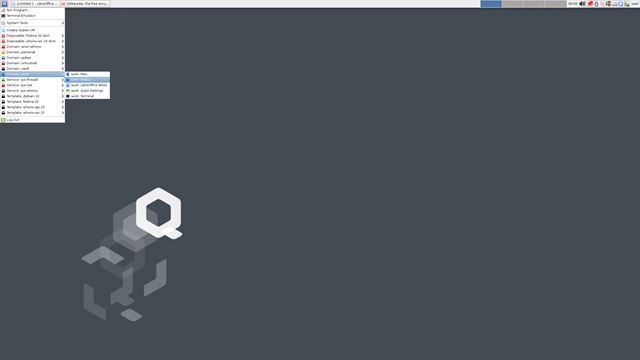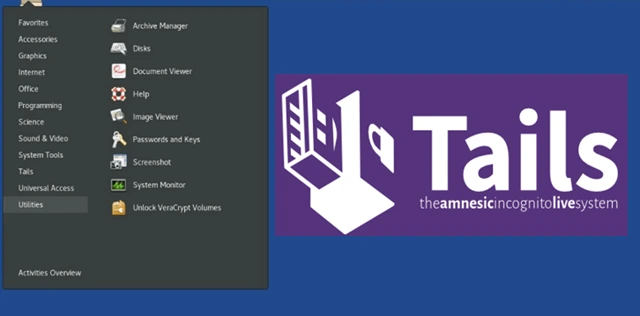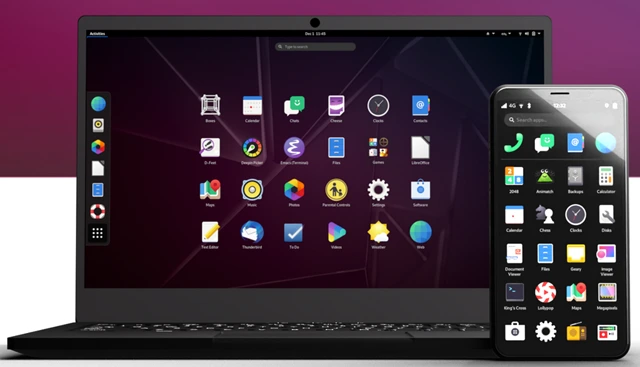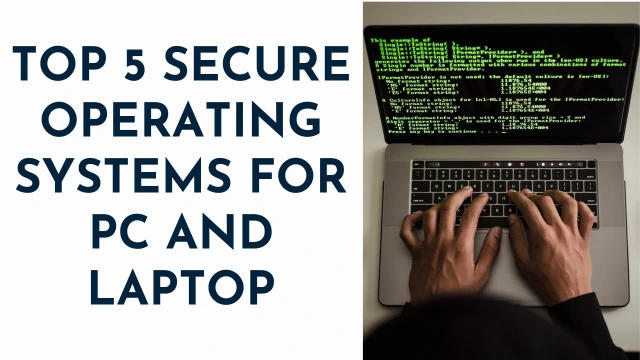Top 5 Secure Operating Systems for PC and Laptop
As we continue to integrate more of our personal and professional lives into the digital world, the importance of cybersecurity becomes increasingly urgent. From financial data to private communications, our computers store a vast array of sensitive information that needs protection. While software-based security measures like antivirus programs and firewalls are essential, the security of your operating system is the cornerstone of your digital defense. This article tell you about Top 5 Secure Operating Systems for PC and Laptop as of 2025.
These operating systems are designed with privacy and security in mind, incorporating advanced features that make them resilient to both common and sophisticated threats. Whether you’re a journalist, developer, business user, or simply a privacy-conscious individual, there’s something here for you.
1. Qubes OS: Security Through Isolation

Website: qubes-os.org
Qubes OS employs a unique security approach known as compartmentalization. This technique isolates different applications and tasks into separate virtual machines (VMs), known as “qubes.” Each qube operates independently, so if one is compromised, the rest remain unaffected. This model provides unparalleled protection against malware and unauthorized access.
- Pros:
- Unmatched compartmentalization for security.
- Supports both Linux and Windows applications.
- Highly customizable security environment.
- Cons:
- Steep learning curve for beginners.
- High hardware requirements.
- Resource-intensive, may not be suitable for older machines.
2. Tails: The Amnesic Incognito Live System

Website: tails.net
Tails is a live operating system that you can start on almost any computer from a USB stick or DVD. It’s designed to protect against surveillance and censorship by forcing all network connections through the Tor network and leaving no trace on the machine you’re using unless explicitly configured to do so.
- Pros:
- Excellent anonymity and privacy via Tor.
- Does not leave traces on host machines.
- Portable and easy to use via USB.
- Cons:
- Not suitable for everyday computing or heavy workloads.
- Limited software and hardware support.
- No persistent storage by default.
3. Linux Kodachi: Privacy Without the Complexity
Website: digi77.com
Linux Kodachi is an Ubuntu-based distribution that offers an out-of-the-box secure experience. It routes your internet traffic through a VPN and Tor network and uses DNSCrypt to encrypt DNS queries. Kodachi also comes pre-installed with numerous security and privacy tools such as secure file deletion, password managers, and encryption utilities.
- Pros:
- User-friendly with a familiar interface.
- Comprehensive out-of-the-box privacy tools.
- Runs live or can be installed with persistence.
- Cons:
- Closed-source VPN configuration raises some transparency concerns.
- Limited community and documentation support.
- Dependent on a good VPN provider for optimal security.

4. Whonix: The Privacy Fortress
Website: whonix.org
Whonix is a Debian-based OS that uses Tor for all network communications and focuses on ensuring anonymity and security. It is structured into two virtual machines: the Gateway (which runs Tor) and the Workstation (where your actual tasks are performed). This separation ensures that even if the Workstation is compromised, your IP address and location are still protected.
- Pros:
- Full isolation of networking and workspace components.
- Consistent traffic anonymization via Tor.
- Integrates with Qubes OS for enhanced security.
- Cons:
- Complex setup for non-technical users.
- Performance depends on virtualization platform.
- Only suited for specific high-security use cases.
5. PureOS: Ethical, Open, and Secure

Website: pureos.net
Developed by Purism, PureOS is a Linux-based operating system that focuses on user privacy and free software. It is endorsed by the Free Software Foundation and is the default OS on Librem devices. PureOS comes with built-in privacy features like DuckDuckGo search, HTTPS Everywhere, and no proprietary software by default.
- Pros:
- Free and open-source with FSF endorsement.
- Privacy-respecting default applications.
- Great for transitioning from mainstream OSes.
- Cons:
- Not as hardened as other security-centric OSes.
- Limited third-party hardware support.
- Missing some advanced privacy features out-of-the-box.
Comparison Table
OS | Security Model | Privacy Tools | Best For | Persistence | Difficulty |
Qubes OS | VM-based Isolation | Whonix, Split-VMs | Security Experts | Yes | High |
Tails | Live + Tor | Tor, OnionShare | Journalists, Activists | No | Medium |
Kodachi | VPN + Tor + DNSCrypt | Preinstalled Security Tools | Everyday Privacy Users | Optional | Low |
Whonix | Isolated Gateway | Tor, Tailscale | Researchers, Developers | Yes | High |
PureOS | FOSS + App Sandboxing | DuckDuckGo, HTTPS Everywhere | Everyday Users | Yes | Low |
Frequently Asked Questions (FAQ)
1. Is using a secure OS enough to stay private online?
While a secure OS is a critical component, it must be combined with safe browsing habits, strong passwords, multi-factor authentication, and encrypted communication tools to be effective.
2. Can I run these OS on a virtual machine?
Some, like Tails and Kodachi, can run live or in a VM, though performance or features like persistence may be limited. Qubes OS and Whonix are designed to operate with or within virtual machines.
3. Are secure operating systems legal?
Yes, they are legal in most countries. However, using privacy tools may draw attention in countries with strict censorship laws.
4. Is there a secure OS that looks and feels like Windows?
PureOS and Linux Mint (with hardening) provide a user-friendly interface similar to Windows and are suitable for newcomers.
5. Which OS offers the best anonymity?
Tails and Whonix are the best for anonymity due to their enforced Tor routing and design philosophy.
Conclusion
Choosing a secure operating system is a vital step in protecting your digital life. Whether you’re looking for advanced isolation, total anonymity, or a privacy-respecting daily driver, the options outlined above cater to a wide spectrum of needs. Start with the one that fits your technical comfort and privacy goals—and always stay updated on best practices to maintain your digital security. Hope you like this article on Top 5 Secure Operating Systems for PC and Laptop.
Suggested Reading:
Top 10 Operating Systems for Old PCs (2025 Edition)
Does Samsung Watch Work with Google Pixel?
Ten Things You Should Never Do on a Work Computer
How to Pick the Right Mini PC for Home, Office and Gaming Usage
Laptop Buying Guide: Finding the Perfect Match for Your Needs
Exploring NVMe SSD Storage: An In-Depth Overview
What is Windows Security Button?
NVMe Storage vs. SSD: Unveiling the Future of Storage Technology

